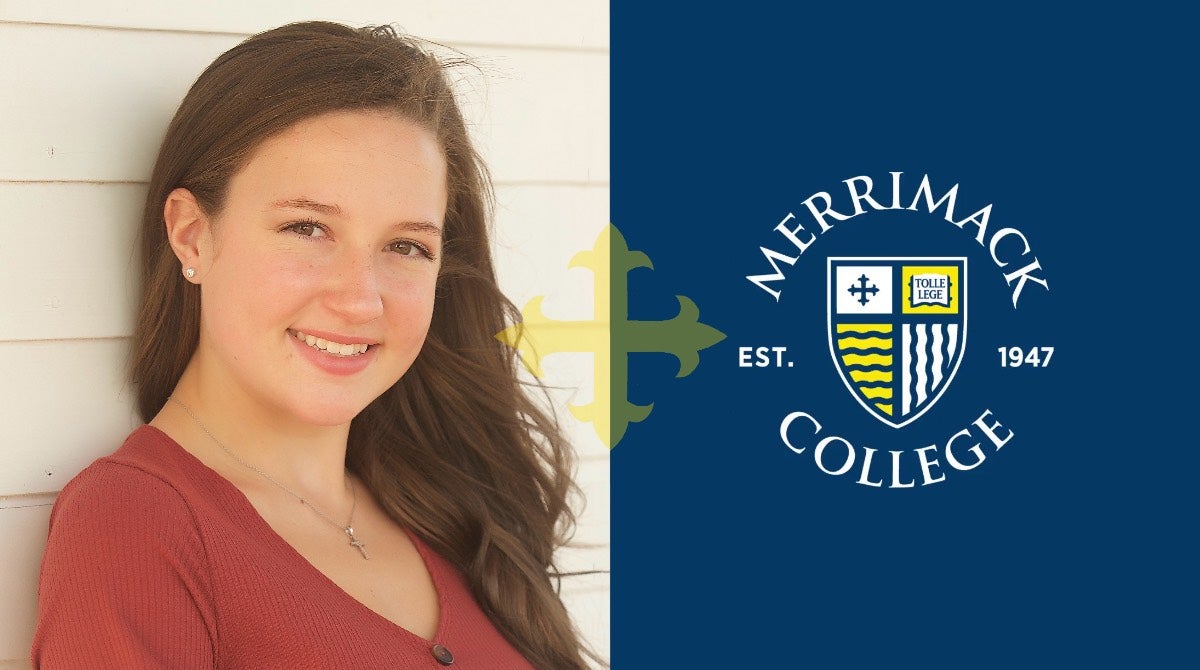GIRARD SCHOOL OF BUSINESS
SCHOOL OF EDUCATION AND SOCIAL POLICY
SCHOOL OF ARTS AND SCIENCES
SCHOOL OF ENGINEERING AND COMPUTATIONAL SCIENCES
SCHOOL OF NURSING AND HEALTH SCIENCES
Excel in the mechanical engineering field and gain the in-depth knowledge necessary to oversee complicated, interdisciplinary projects and work on everything from robotics and prosthetics to rocket propulsion systems with Merrimack’s Master of Science in Mechanical Engineering.
Merrimack’s mechanical engineering master’s degree allows students to design academic programs tailored to their interests and provides advanced technical knowledge and practical skills for advancement in the engineering profession. It addresses the significant demands for advanced degrees to address society’s engineering challenges in robotics, manufacturing, defense systems, medical devices and other high-tech industries.
This program’s curriculum will train you to be a subject matter expert in mechanical engineering. Throughout the program, you will have the opportunity to make a substantial impact on the cutting-edge mechanical engineering field, evaluated by a panel of three subject matter experts possessing advanced degrees and a history of published research. Furthermore, you are anticipated to function as an independent research contributor, taking on responsibilities that encompass literature review, research design, experimentation, and the creation of scholarly materials, including conference papers and academic journal articles. Your graduate advisor will provide guidance and oversight throughout these activities.
Merrimack’s highly versatile mechanical engineering master’s degree allows you to choose between two different options to pursue the learning experience that best fits your scholarly and professional needs: the Master’s Thesis Option and the Master’s Project Option. With the Master’s Thesis Option, you will delve into research and identify significant gaps in the field of mechanical engineering. With the Master’s Project alternative, you’ll immerse yourself in real-world problem-solving and critical decision-making processes related to mechanical systems and devices. Students integrate their coursework with research or project work to ensure a unique and holistic learning experience. Both options have the same first-year curriculum.
This program is meticulously crafted to enhance your skill set and equip you to emerge as a prominent figure in the mechanical engineering domain. With a comprehensive curriculum, immersive hands-on experiences, and a team of experienced faculty members, you will attain the caliber of expertise that organizations actively seek in their team members.
At Merrimack, we cultivate an atmosphere that promotes networking and career advancement, and we urge you to form meaningful relationships with experienced faculty while becoming a part of a close-knit community of peers.
Merrimack’s mechanical engineering master’s degree is designed to offer competitive tuition compared to other programs. Additionally, we offer scholarships that significantly reduce the cost of tuition and graduate fellowship opportunities for students opting for the thesis option*, in which students work closely with and in support of faculty research in exchange for a large tuition discount.
*Please note that a fellowship position is not guaranteed for all thesis students. All students (project and thesis) may qualify for a scholarship.

Learn about the Merrimack College community, application process, financial aid, your program's curriculum, professional opportunities, fellowships and more!
Submitting test scores are optional for Merrimack’s graduate admission. However, we encourage you to submit your scores if you feel they will support or enhance your academic background. There is no fee to apply.
Merrimack’s mechanical engineering master’s degree program provides a versatile framework that accommodates diverse preferences and career aspirations through the availability of two options: the Master’s Thesis Option and the Master’s Project Option. These paths are designed to accommodate various learning styles and professional ambitions, enabling students to customize their educational journey to align with their academic and career objectives, while also fostering technical expertise and mastery in their chosen field. These options have the same first year of coursework.
Below is a brief overview of each option:
The thesis option emphasizes academic research and is ideal for students interested in diving deeply into a specific topic within their field. Under the guidance of a faculty advisor, students will conduct original research, analyze their findings, and present them in a formal written thesis. This process culminates in a defense before a committee. Opting for the thesis route provides a foundation for those considering further academic pursuits, such as a Ph.D., and hones skills in research methodology, critical analysis and scholarly writing. In year 2, the thesis student will take two semesters of thesis work (8 credits) under the mentorship and supervision of a faculty member.
The project option focuses on practical application, allowing students to apply their coursework knowledge to real-world challenges. Instead of extensive academic research, students undertake a significant project, which may be collaborative. This project demonstrates their ability to solve problems, innovate, and produce tangible outcomes. A final report or presentation is typically required, detailing the project’s objectives and results. This option is well-suited for students aiming to enhance their practical skills for direct application in industry or professional settings.
Merrimack’s mechanical engineering master’s degree will enable you to gain in-depth knowledge of core engineering principles, design and analysis techniques, manufacturing processes, robotics, heat transfer, dynamics, advanced materials, sustainable design, research and elective specializations.
In this 34-credit program, you will:
Obtaining a career in mechanical engineering today is extremely promising, as much of society’s functions are becoming mechanized. Numerous prestigious companies are actively seeking motivated and inventive mechanical engineers, precisely the kind of candidates produced by Merrimack’s graduate programs. Upon completing a Master of Science in Mechanical Engineering from Merrimack College, you will be well-equipped for a wide range of engineering roles, from design and analysis to research and development, and you’ll have the knowledge and skills needed to make significant contributions to the field.
Applicants must hold a Bachelor of Science degree in Mechanical Engineering from an accredited college or university. Applicants with a Bachelor of Science in other engineering disciplines or closely related fields (such as civil engineering, chemistry, physics, mathematics, etc.) will be reviewed case-by-case. An undergraduate GPA of at least a 2.7 on a 4.0 scale is required for entry to the graduate program, and it is recommended that all applicants have a GPA of at least 3.0. English proficiency is required for admission. There is no fee to apply.
Recommended prerequisite courses:
“I was drawn to Merrimack because of its reputation for its helpful and approachable faculty. I was fortunate to be able to work as a research assistant with a faculty member in an area that greatly interested me.”
― Sarah Kapelner M’17
Merrimack College scholarships can provide additional support to limit your expenses and debt burden. All graduate students are automatically considered for our Dean Scholarship. Students in the thesis option may also apply for a fellowship, in which they will work closely with and in support of faculty research in exchange for a significant tuition discount.

Contact the Merrimack College Office of Graduate Admission at graduate@merrimack.edu.
"*" indicates required fields
Graphic Design major Abby O’Keefe and her design internship with the O’Brien Center at Merrimack College
